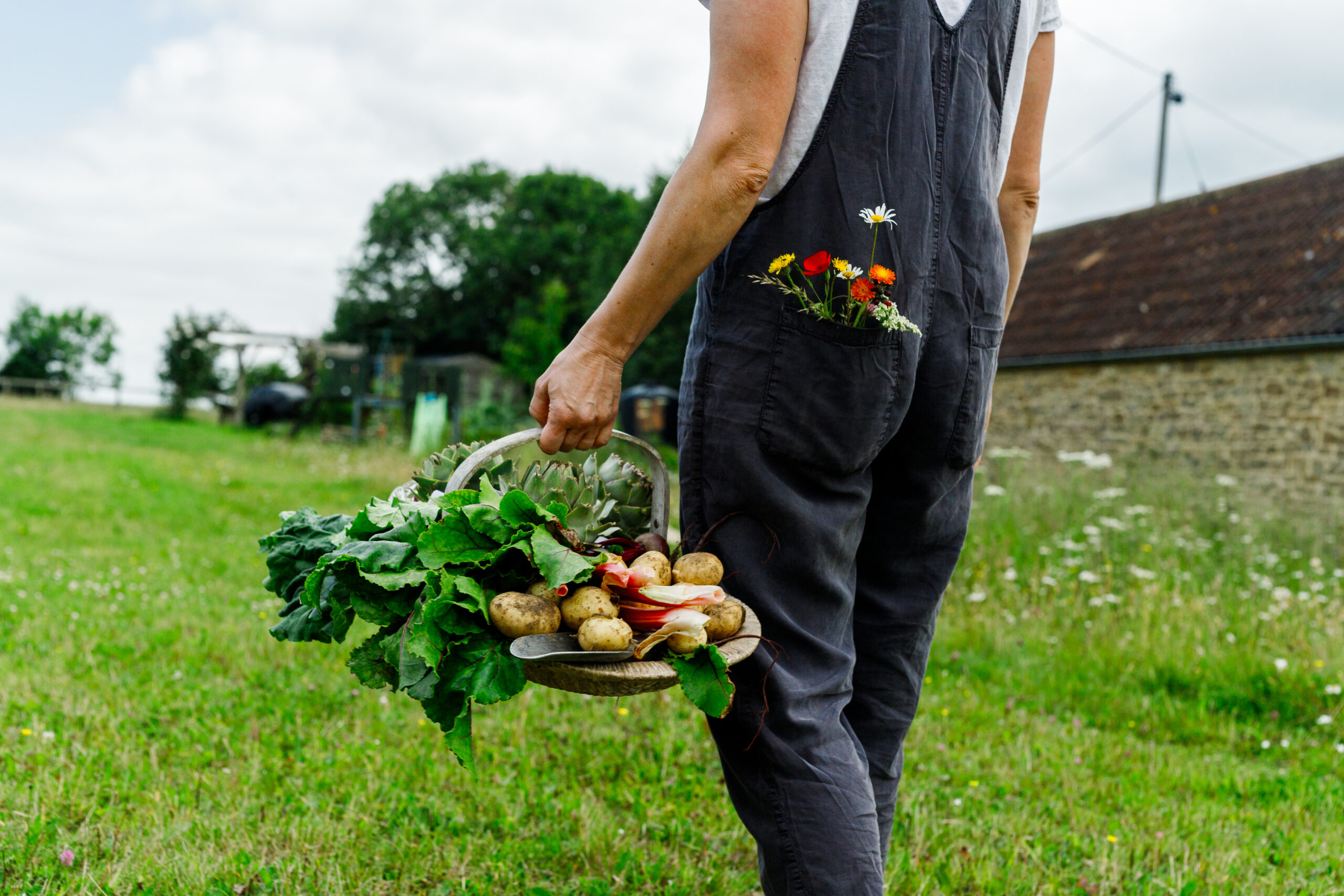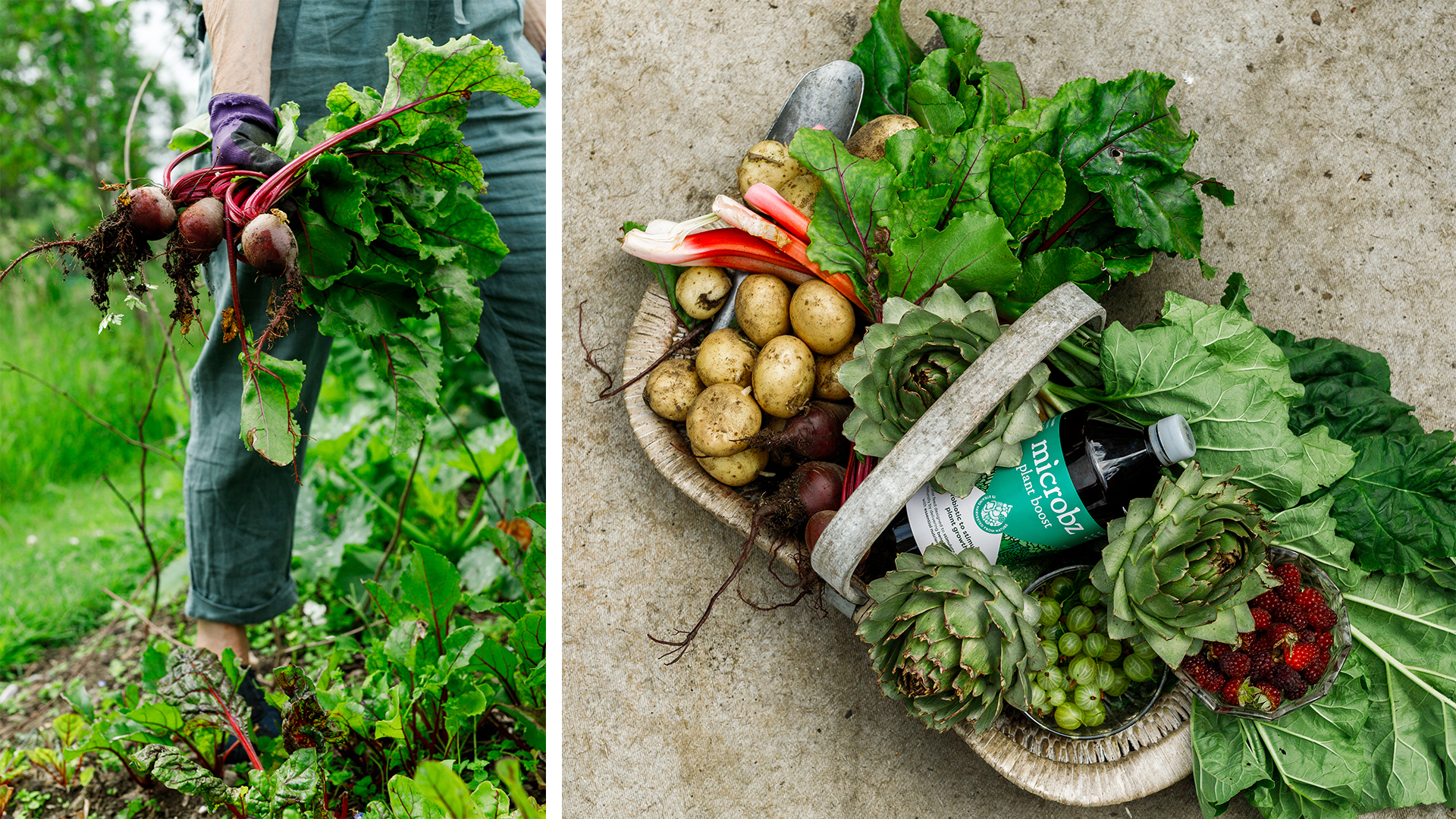How microbes can help our gardens withstand a changing climate

Guest blog for the National Garden Scheme by microbz
We Brits are known for our love of gardens – you could say it’s a national obsession. We love growing flowers and vegetables; we love showing off and visiting gardens too. Historically, the combination of mild weather and rainfall all year round gives us a long growing season, and our Victorian ancestors scoured the globe for unique and colourful plants to beautify and add interest. Today, thanks to the National Garden Scheme, thousands of private gardens – small and large, urban and rural – regularly attract visitors to pore over and share varieties of tulips, geraniums, roses, wildflowers and on and on.
But while we admire the colour above ground, something urgent is happening below it.
Our changing climate is challenging traditional gardening methods. After one of the muddiest winters on record, this summer’s lawns are cracked and brown, and flower beds are wilting in the heat. Resilience has become the gardener’s new watchword. So how do we prepare our gardens for flood and drought, pests and disease? How do we protect the very thing everything depends on; the soil?
It all starts in the soil
Healthy soil is more than just dirt. It’s a living, breathing ecosystem teeming with billions of microbes, bacteria, fungi, yeasts and more. They feed earthworms, bind nutrients, support plant roots, and create structure. The more biologically alive the soil is, the more resilient your garden becomes.
Thriving soil microbiology builds immunity into the garden itself. When we understand how nature works, and work with it rather than against it, we create the conditions for life to flourish.
Microbes: nature’s original builders
Since 2005, husband-and-wife team Jeff and Sue Allen have been working with the invisible architects of life: soil-based microbes. At their farm in Wiltshire, they brew liquid probiotic blends using a diverse mix of bacteria and yeasts, fermented with herbs, minerals and natural nutrients like molasses, seaweed, fulvic and humic acids.
“Just as diverse microbes in our gut are essential to our health and wellbeing,” Sue explains, “diverse microbes in the soil are essential to the vitality of plants. Soil is the gut of the planet.”
She adds, “Like many gardeners, I used to apply slug pellets and weed killers before I understood the damage I was doing. Now we’re seeing how overusing antibiotics and chemicals in humans, animals and soil has disrupted balance on so many levels. It’s time to shift our mindset and work with nature, not against it.”
Jeff adds, “Our intention is to bring degraded soils back to life by natural means, regenerating the biology that is so essential for healthy soil – and essential for healthy food and healthy people. Soil based microorganisms are the building blocks of all life on this planet; it is not necessary for us to re-engineer the answers. The answers are already here and it’s the application of this knowledge that is required.”
The benefits of adding beneficial microbes to your garden
By applying liquid microbial blends to soil, leaves, compost or ponds, you’re reintroducing a wide diversity of beneficial microbes. This microscopic life makes all other life possible.
These ‘invisible gardeners’ help:
- Improve nutrient uptake and nitrogen-fixing
- Increase earthworm activity
- Reduce reliance on fertilisers
- Outcompete pathogens and pests
- Enhance water retention in dry conditions
- Accelerate composting
- Promote flowering, fruiting and ripening
- Increase vegetable yields (onions +29%, peas +31%, sweetcorn +23%)
In fact, 70% of published studies show beneficial microbes boost vegetable growth, and 84% show increased yields.

Rebalancing our world from the ground up
This isn’t just about our gardens. The same microbial force that regenerates soil can also regenerate our homes, our bodies, and even our mental health.
Microorganisms are in every living thing and on every surface, they are in the air we breathe and the food we consume. They are nature’s original network: silent collaborators in every healthy ecosystem. When we live in partnership with them, we begin what we call a ‘probiotic life’. This world of microbes is an invisible force for good that exists in us and all around us, why wouldn’t we join forces with it to rebalance our world.
Join forces with nature
Every handful of healthy soil tells a story, not just of gardens in bloom, but of the unseen microbial magic that makes it all possible.
At microbz, we believe that gardening is no longer just a hobby. It’s an act of regeneration. By nurturing the soil biology, you nurture your plants, your health, and the planet we share.
So the next time you admire a flourishing border or dig your hands into compost, remember: the real gardeners are already at work; tiny, tireless, and ready to help.
Join forces with nature. Your garden will thank you for it.
From pot to pond: garden probiotics in action
The microbz garden range includes:
- Soil Conditioner: revitalises soil before planting and after harvest
- Plant Boost: foliar spray to enhance growth and resilience
- Compost Activator & Bokashi: speeds up composting, reduces smell
- Pond Balance: rebalances water microbes and reduces algae
Sue shares, “I use the Soil Conditioner in spring and autumn or when I am planting and after harvesting. It’s great for pot plants and containers too. Then Plant Boost is a foliar feed for spraying on the leaves during the growing season – I notice the extra growth and robustness straight away. Compost Activator goes into my hot bin for food waste, along with Bokashi which I also make, and onto the compost piles of course. We have a couple of ponds that are susceptible to algae and the microbes in Pond Balance aerate the water and absorb the worst of the growth.”
Enjoy 15% off microbz products
Microbz is offering 15% off any of their products to National Garden Scheme supporters – simply view the Microbz products shop online here and enter the code: microbzNGS at check out to claim your discount.
Look out for the wonderfully wild and inspiring Microbz garden opening for the National Garden Scheme in Wiltshire in 2026 too!

















